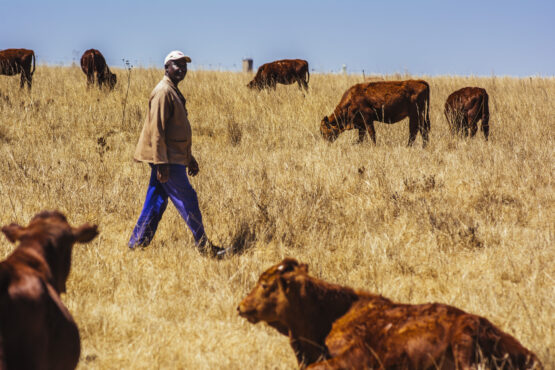South Africa’s Land Bank Reaches Agreement Ending Debt Default
The Land Bank provides credit to commercial and emerging black farmers, part of an effort by South Africa to redress imbalances from racial-segregation policies that were ended in 1994.
- Advertisement -
South Africa’s biggest lender to farmers reached an agreement to resume repayments on its debt, four years after it defaulted.
The Land & Agricultural Development Bank of South Africa will resume repayments on its loans on September 16, Chairwoman Thabi Nkosi told reporters in the capital, Pretoria, on Monday.
- Advertisement -
“We have now reached a comprehensive agreement with the bank’s members,” she said. “This agreement not only brings an end to the Land Bank’s four-year state of default, but it also positions the bank firmly on a sustainable path to recovery.”
- Advertisement -
The Land Bank provides credit to commercial and emerging black farmers, part of an effort by South Africa to redress imbalances from racial-segregation policies that were ended in 1994.
It’s among several state-owned companies that have been plagued by years of declining capital investment and mismanagement, which left them in a poor financial position and reliant on government handouts to survive.
The lender missed a loan repayment in April 2020 that triggered a cross-default in notes issued under a R50 billion ($2.8 billion) bond program. The government in 2021 committed R7 billion in support for the Land Bank over three years, after paying R3 billion to the lender in the form of a bailout.
- Advertisement -
The bank’s outstanding debt has fallen to about R16 billion, from R45 billion in 2020, after various repayments were made in the period through August 2023, Chief Executive Officer Themba Rikhotso said at the briefing.
Of the remaining debt, there will be “an immediate 25% capital reduction of about R4 billion,” he said. “This will leave about R12 billion that is being restructured under this debt restructure.”
Given the strain state entities have placed on public finances, the National Treasury has adopted a stricter approach toward funding them. It has vowed not to inject more capital into the companies unless they commit to a range of reforms to make them more sustainable and efficient and attached strict conditions to relief packages for power utility Eskom and logistics firm Transnet.
In February, the Treasury reduced the amount of debt relief it provided to Eskom after it failed to meet its obligations.
Source:norvanreports.com
- Advertisement -


